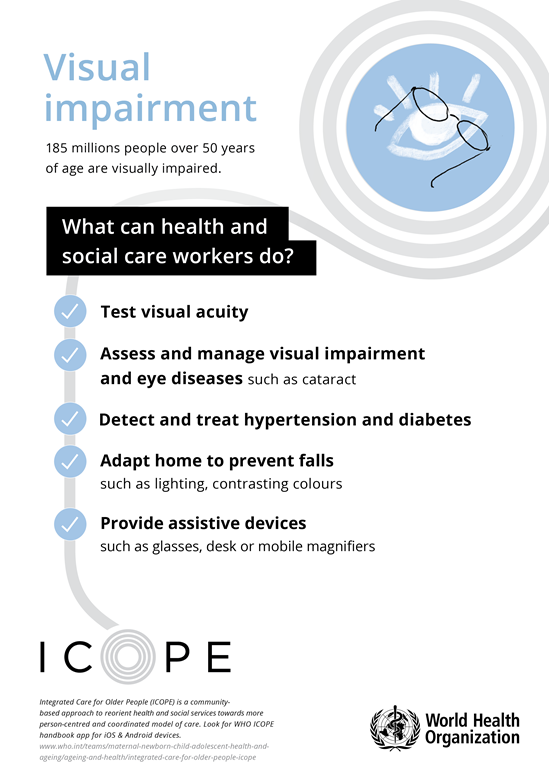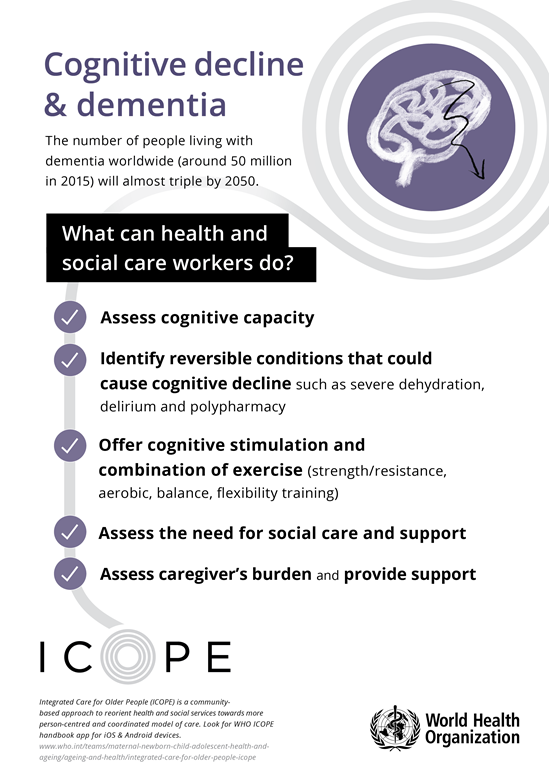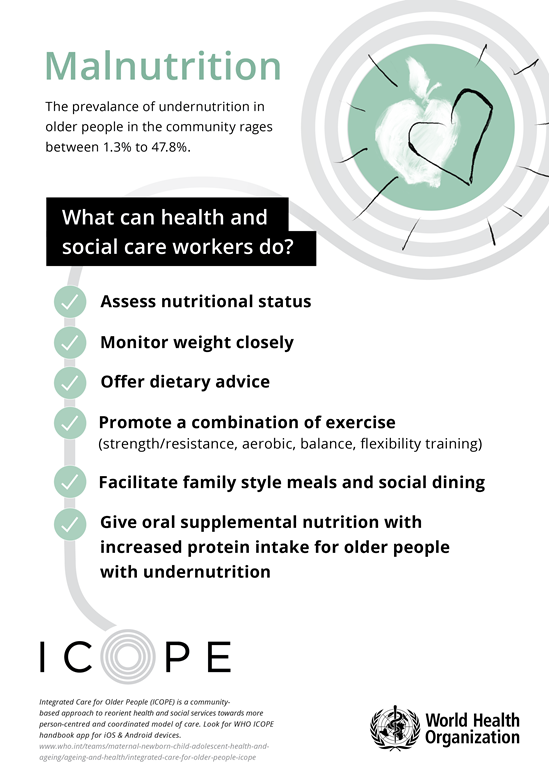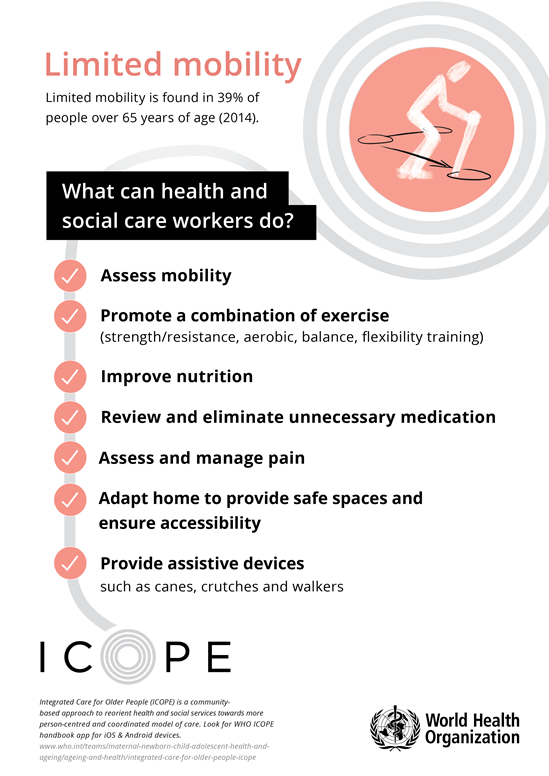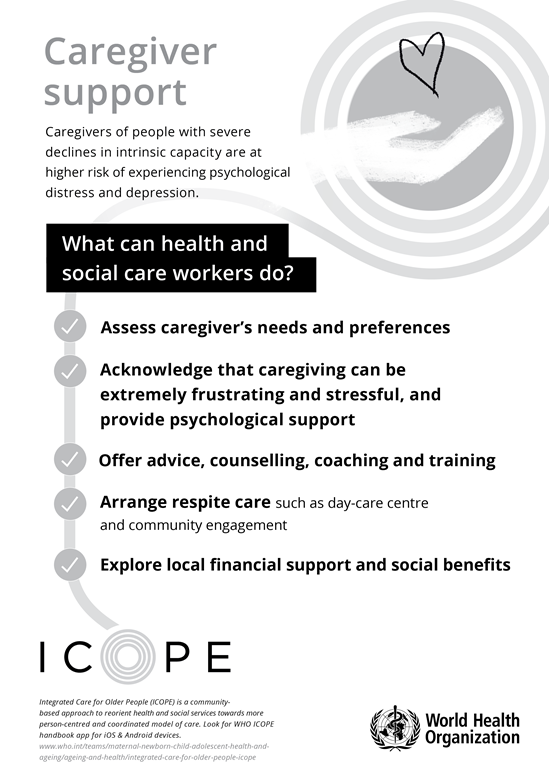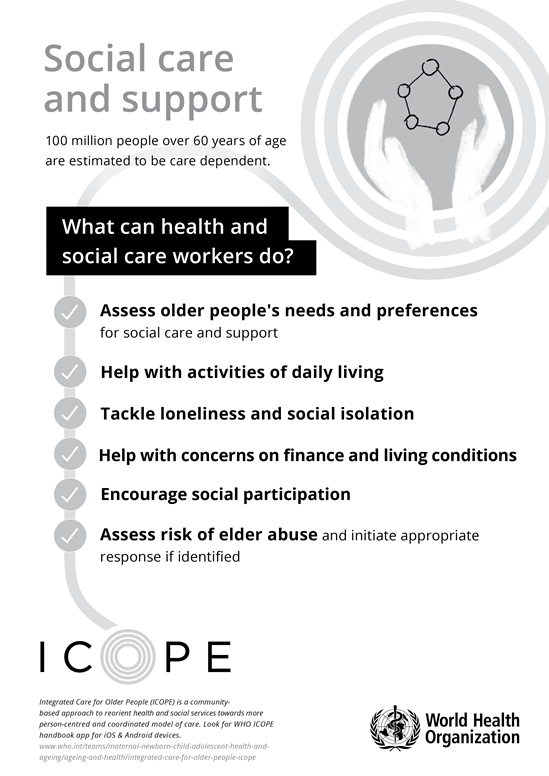Providing access to long-term care for older people
Older people continue to have aspirations to well-being and respect regardless of declines significant in physical and mental capacity.
Long-term-care systems enable older people, who experience significant declines in capacity, to receive the care and support that allow them to live a life consistent with their basic rights, fundamental freedoms and human dignity. Establishment of sustainable long-term care systems can also help reduce the inappropriate use of acute health-care services, help families avoid catastrophic care expenditures and free women – usually the main caregivers – to have broader social roles. While global data on the need and unmet need for long-term care do not exist, national-level data reveal large gaps in the provision of and access to such services in many low- and middle-income countries.
Long-term care services include traditional health service such as management of chronic geriatric conditions, rehabilitation, palliation, promotion and preventative services. However, long-term care services should also include assistive care services such as caregiving and social support for older people. All these services must be integrated and provided in a continuum with the underlying core principles of person-centred care.
WHO has identified three approaches that will be crucial. These are:
- establishing the foundations necessary for provision of long-term care as part of universal health coverage;
- building and maintaining a sustainable and appropriately trained workforce and supporting caregivers; and
- ensuring the quality of long-term care.
To support these approaches WHO will:
- provide technical support for national situation analyses of long-term care and for development, implementation and monitoring of relevant legislation, policies, plans, financing and services; and
- design tools and guidance for a minimum package of long-term care as part of universal health coverage, including: the provision of online resources for informal caregivers; the improvement of the working conditions of care workers; and the assessment of the health impact of social protection programmes.







